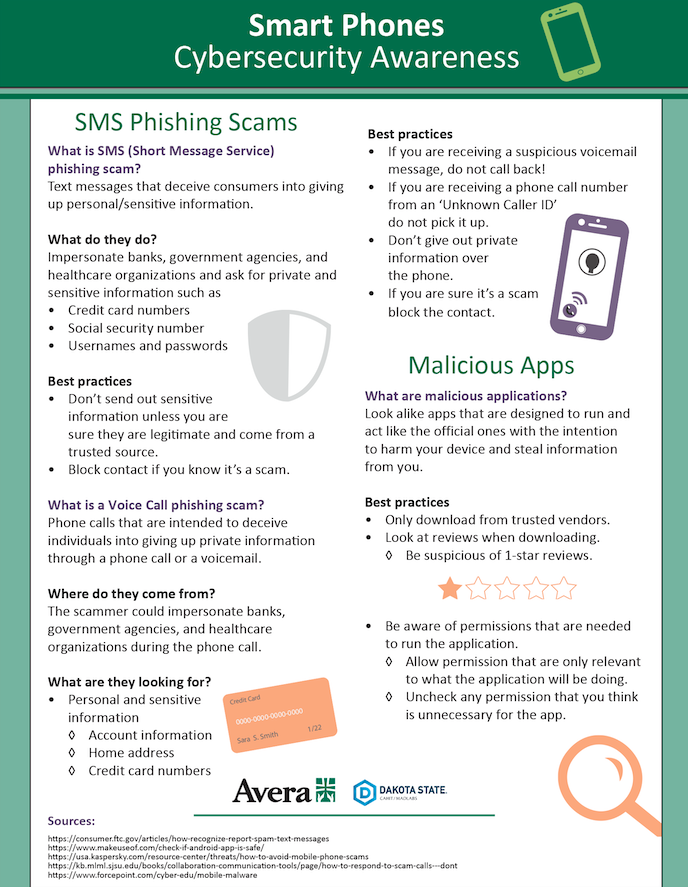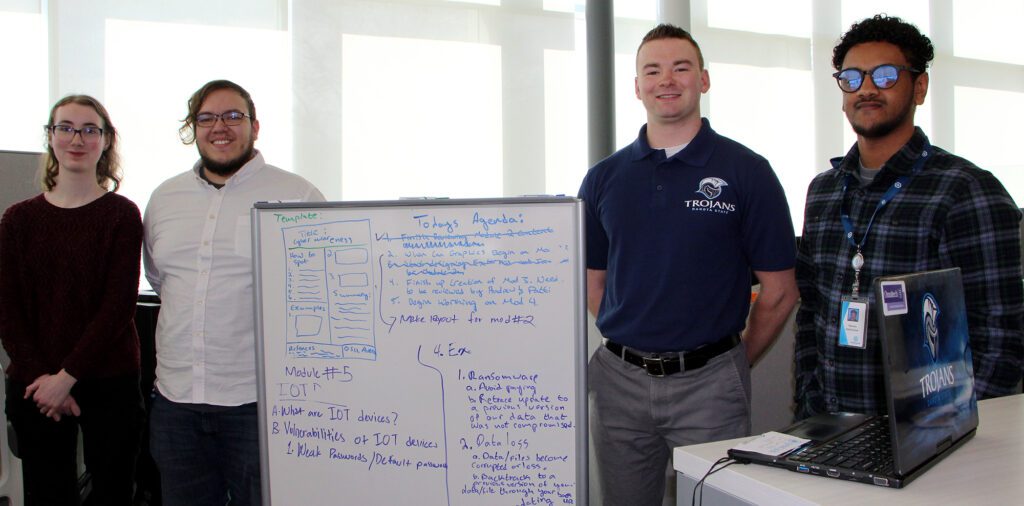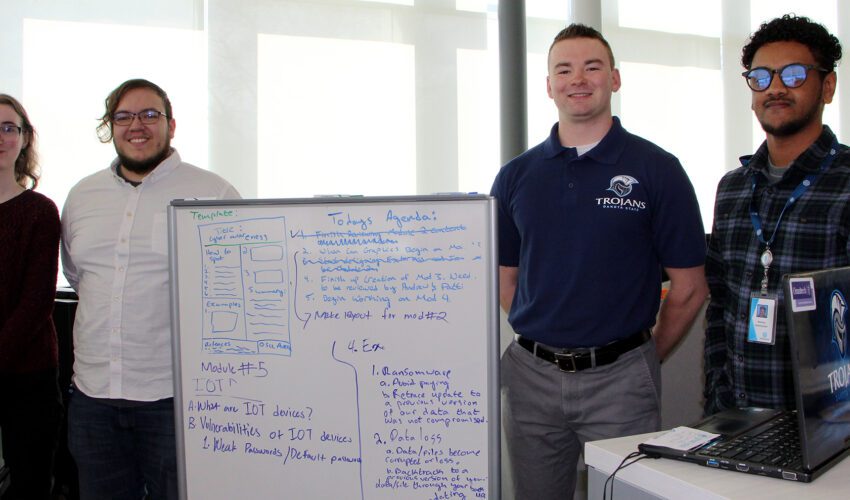Everyone wins as Avera, DSU partner on cybersecurity awareness
June 2, 2022
This paid piece is sponsored by Dakota State University.
Security awareness is important in all aspects of life, including health care, so that’s why Avera reached out to Dakota State University for help in creating education materials on cybersecurity awareness for employees and the public.
“Technology has many wonderful benefits – and nowhere is that more true than in health care,” said Nathan Johnson, communications and public relations partner with Avera Health.
“However, along with these helpful aspects of technology, we’ve been challenged with the variety and potency of cybersecurity threats,” Johnson said, such as phishing emails sent from bad actors hoping to access the network.
“While IT teams can do a lot to provide security, it really is a partnership with the rest of the organization,” Johnson said.
Jim Hanson, information security officer for Avera Health, agrees.
“Avera sees cybersecurity as a critical issue, especially with health information,” Hanson said, and “due to the wealth of valuable and protected information, hardly a day goes by when we don’t see national articles about health care being targeted by people trying to gain access to systems.”
So Avera decided to partner with DSU to create educational flyers, videos and social media content about various cybersecurity threats. The connection with Dakota State came after meeting the university’s cybercrime team this year, Hanson said.
“The talent of this team is unique, and they have the ability to help so many people with their knowledge,” he stated.
This is an example of the marketing materials DSU students created for Avera Health on cybersecurity awareness.
“We’re so lucky to have a world-class cybersecurity program in the state that can benefit all of us in this way,” Johnson said. “It’s one reason we wanted to collaborate – to help the public understand the vital work being done at DSU regarding this very important topic.”
This was an ideal service project for the Madison Cyber Lab CAHIT, said director Dr. Patti Brooks. CAHIT is the Center for Advancement of Health Information Technology, which focuses on research, service and industry/professional development in regard to health information.
Initially, the Avera project was to create health care security awareness education materials for external customers, Brooks explained, but then it expanded to include materials for vendors and staff.
These materials will not only benefit Avera employees, Johnson said, but “can also be used to educate the public about the dangers they face in their home – or their pocket – every day.”
“Education and persistence are our best defense,” he said.
The project includes five pillars:
- Emails, such as phishing scams.
- Smartphones.
- Endpoint protection.
- Cloud and internet services.
- Internet of Things, or IoT, devices.
CAHIT hired four students to work on the project: two students from The Beacom College of Computer & Cyber Sciences and two digital arts and design students from the College of Arts & Sciences.
DSU students Kathleen Lange, Severin French, Jakob Kaiser and Nahome Hailemichael worked on a cybersecurity marketing project with Avera Health, creating materials for various audiences.
Nahome Hailemichael, a computer science major from Ethiopia, said “cybersecurity is an important topic right now. It’s not ‘if’ you get hacked, it’s ‘when’ you get hacked, so there are many ways this information will apply.”
Hailemichael and Jakob Kaiser, a cyber operations major from Faulkton, worked on content. They both discuss cybersecurity topics regularly with faculty and other students but appreciated this experience writing for noncyber majors at the recommended seventh-grade reading level.
“We’re not used to that type of conversation, so we had to be aware of how to say things in a more specific way for the general public,” Kaiser said.
Taking that content, Severin French, a production animation student from Gackle, North Dakota, and Kathleen Lange, a computer graphics major from Bridgewater, created a variety of graphic materials.
Lange worked to find a balance with infographics that would grab the reader’s attention. French used his coursework in motion animation to make content visually appealing and engaging through motion. He prefers a minimalistic look because it’s cleaner, neater and more effective at conveying the information,” he said, “but I still try my best to make them look really nice.”
Both the design and technology majors learned time management, teamwork and communication skills with the project, but Kaiser also saw the project as a perfect fit for his future career.
“When I heard this project would be about cybersecurity education, I saw that it really tied in with what I’d like to do in the future, working on the governance side of cybersecurity, bringing policies to bigger audiences,” he said.
“This project was an excellent opportunity to think of all the ways people can take the information and what they will do in a certain situation.”
It has been “a great experience working with the students and their instructors to develop these educational pieces and to showcase what they can do,” Johnson said. Brooks added that it is a good example of the collaboration possibilities between the university and businesses.
“My hope is that there will be other businesses that will realize they can come to DSU and get help with health care IT projects,” Brooks said. “This could be a summertime project, or we can get people lined up for particular services.”
Businesses interested in this possibility can contact [email protected], or 605-256-5165.










